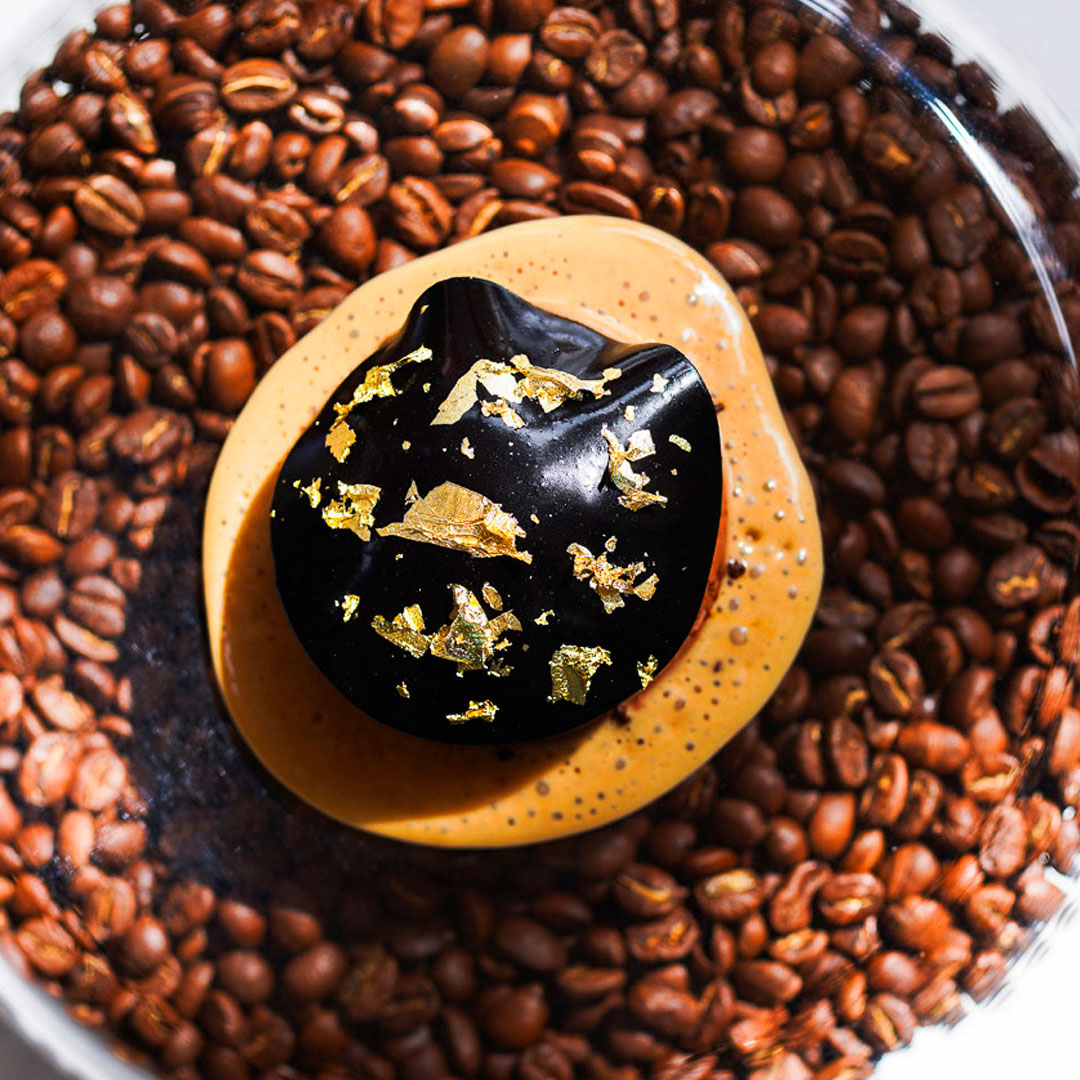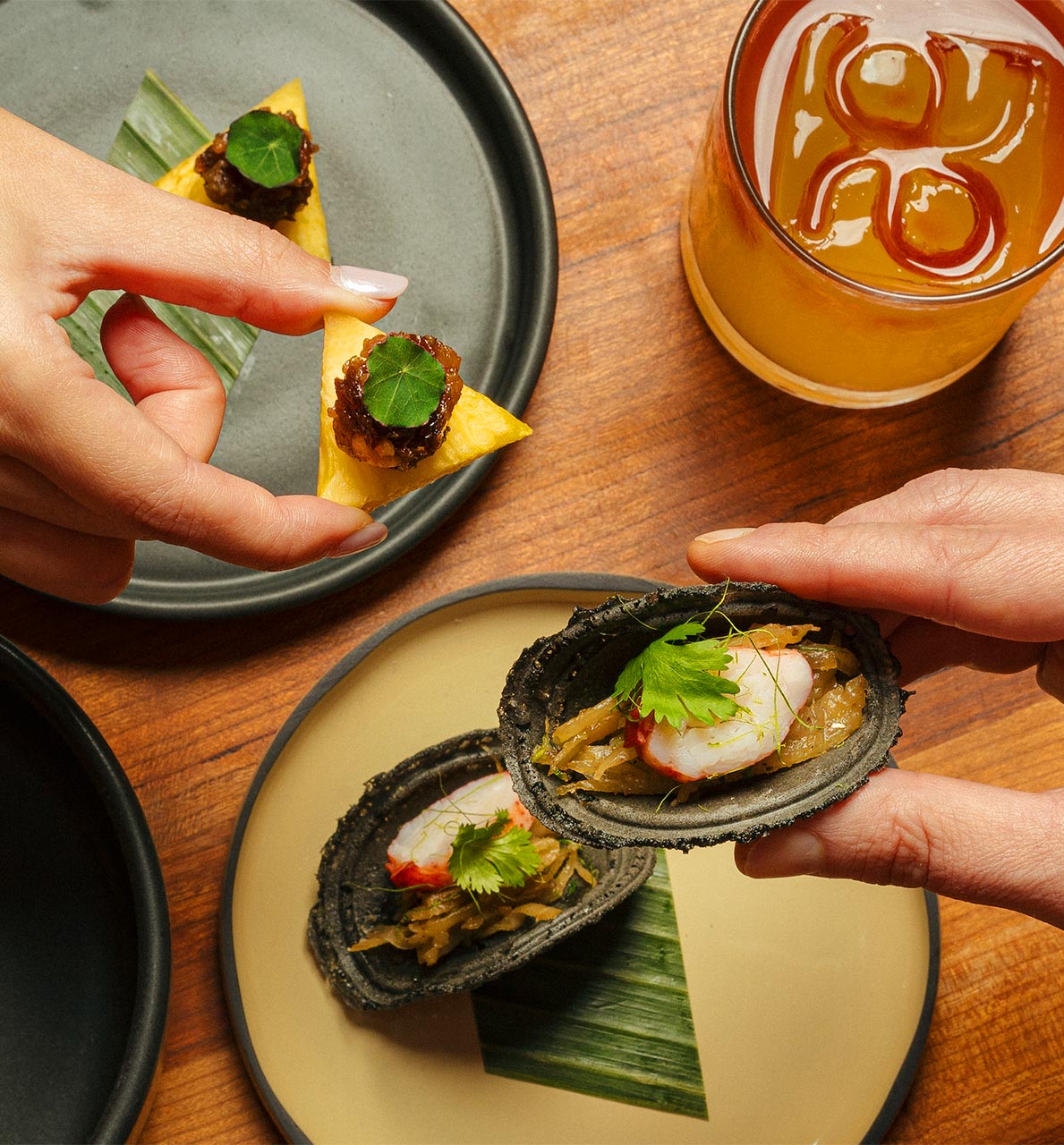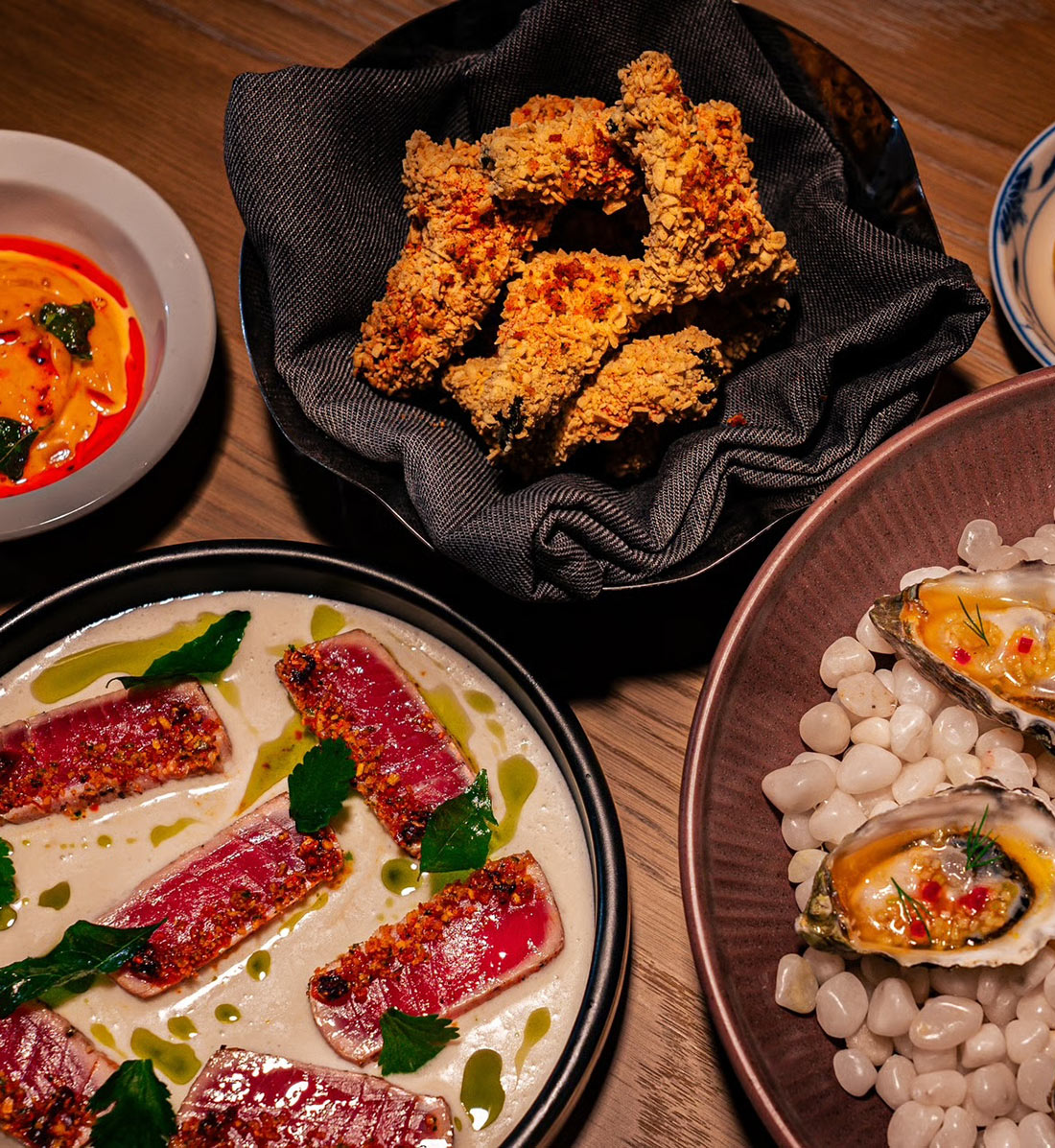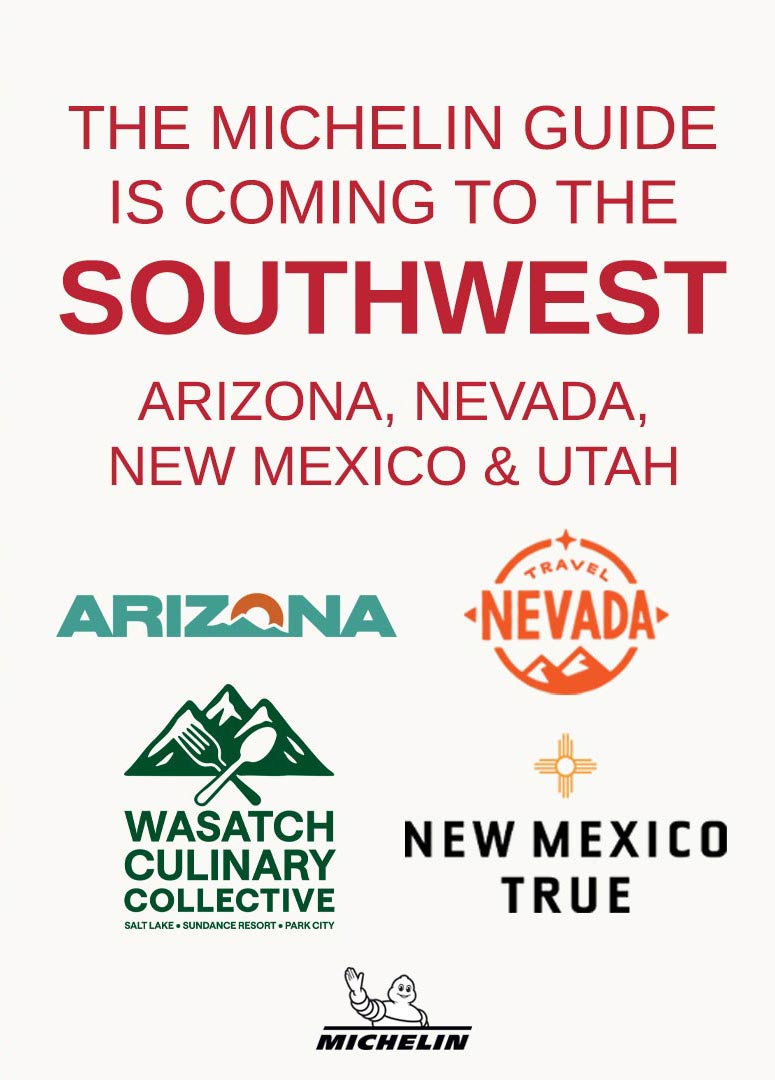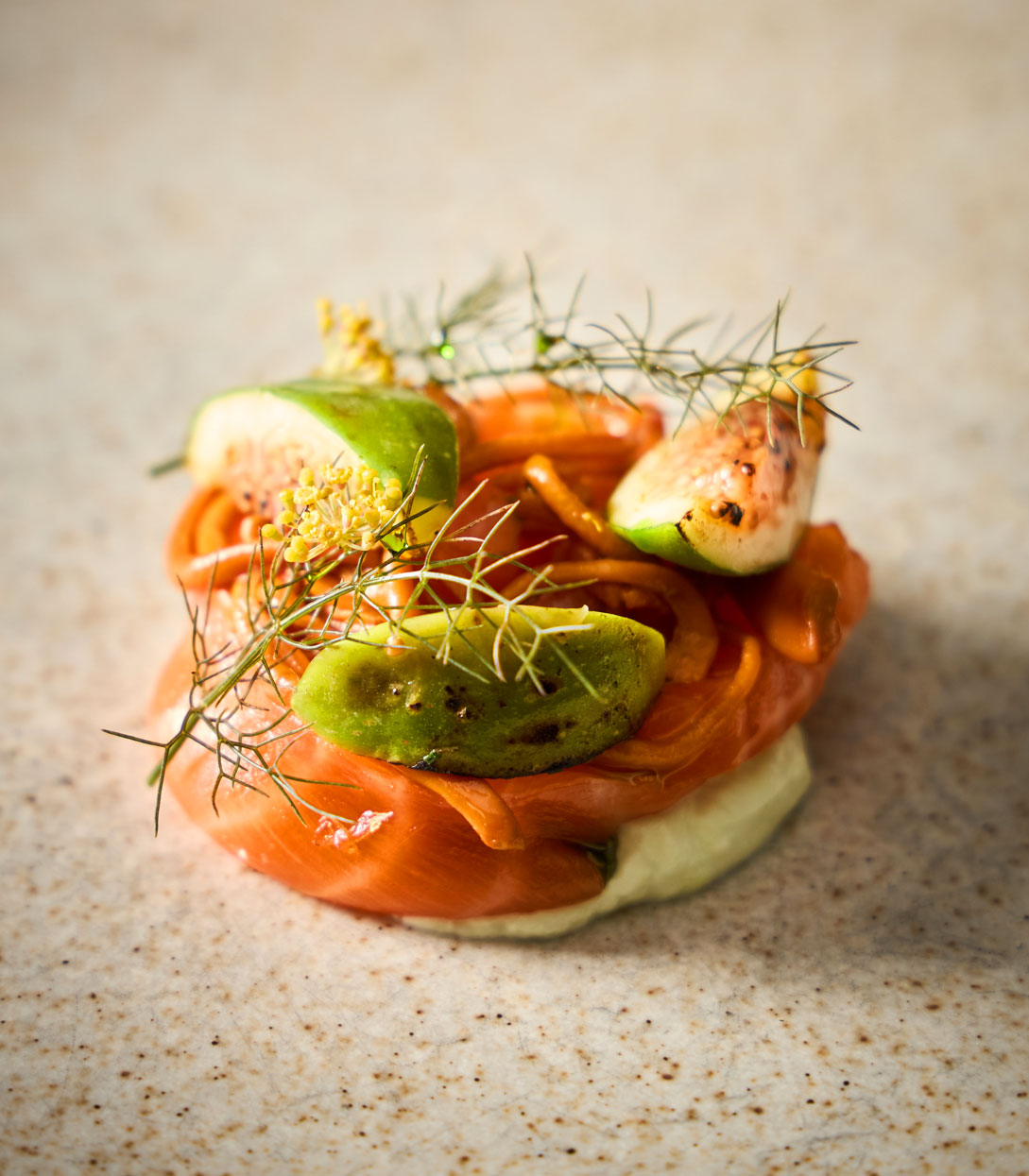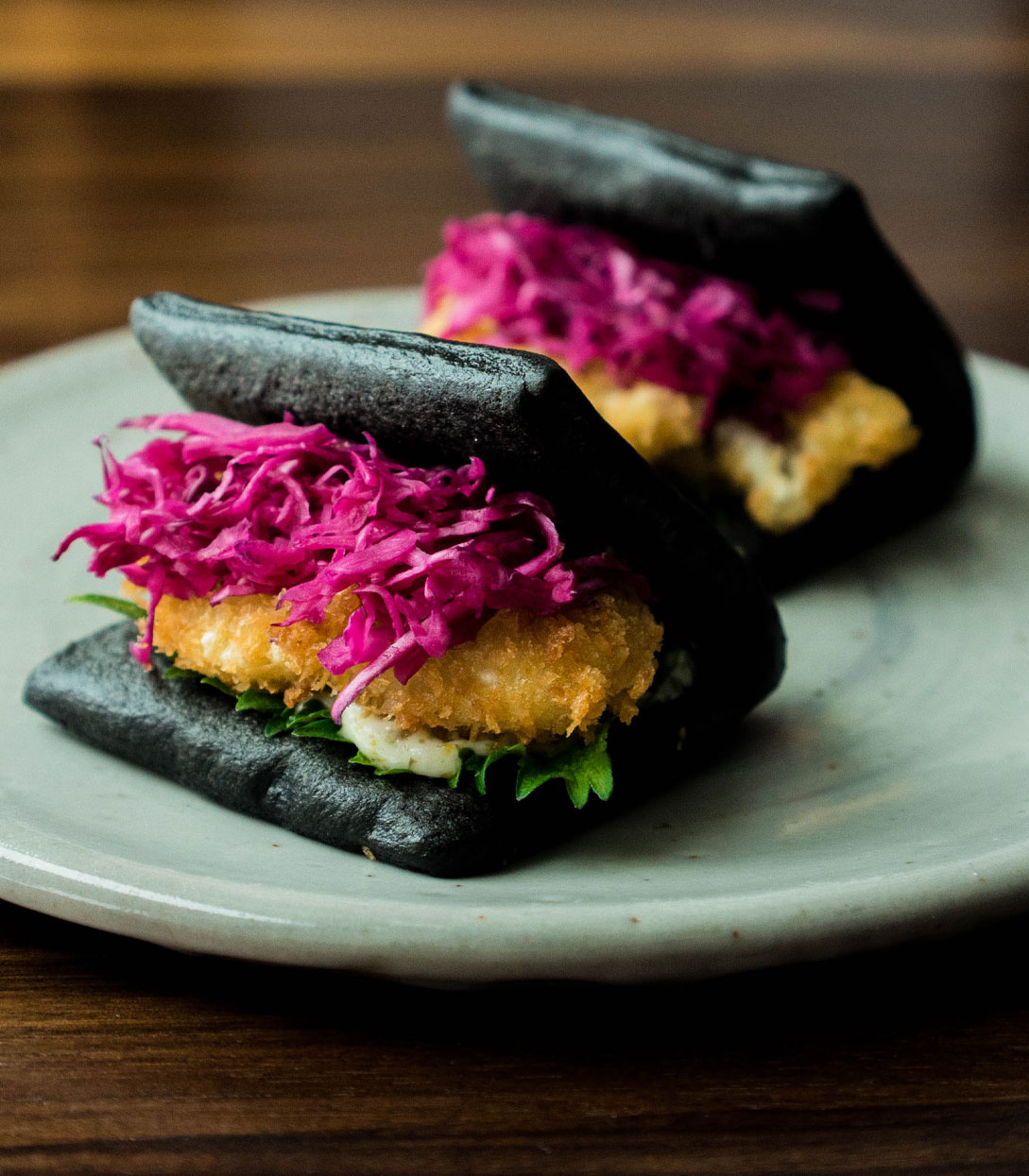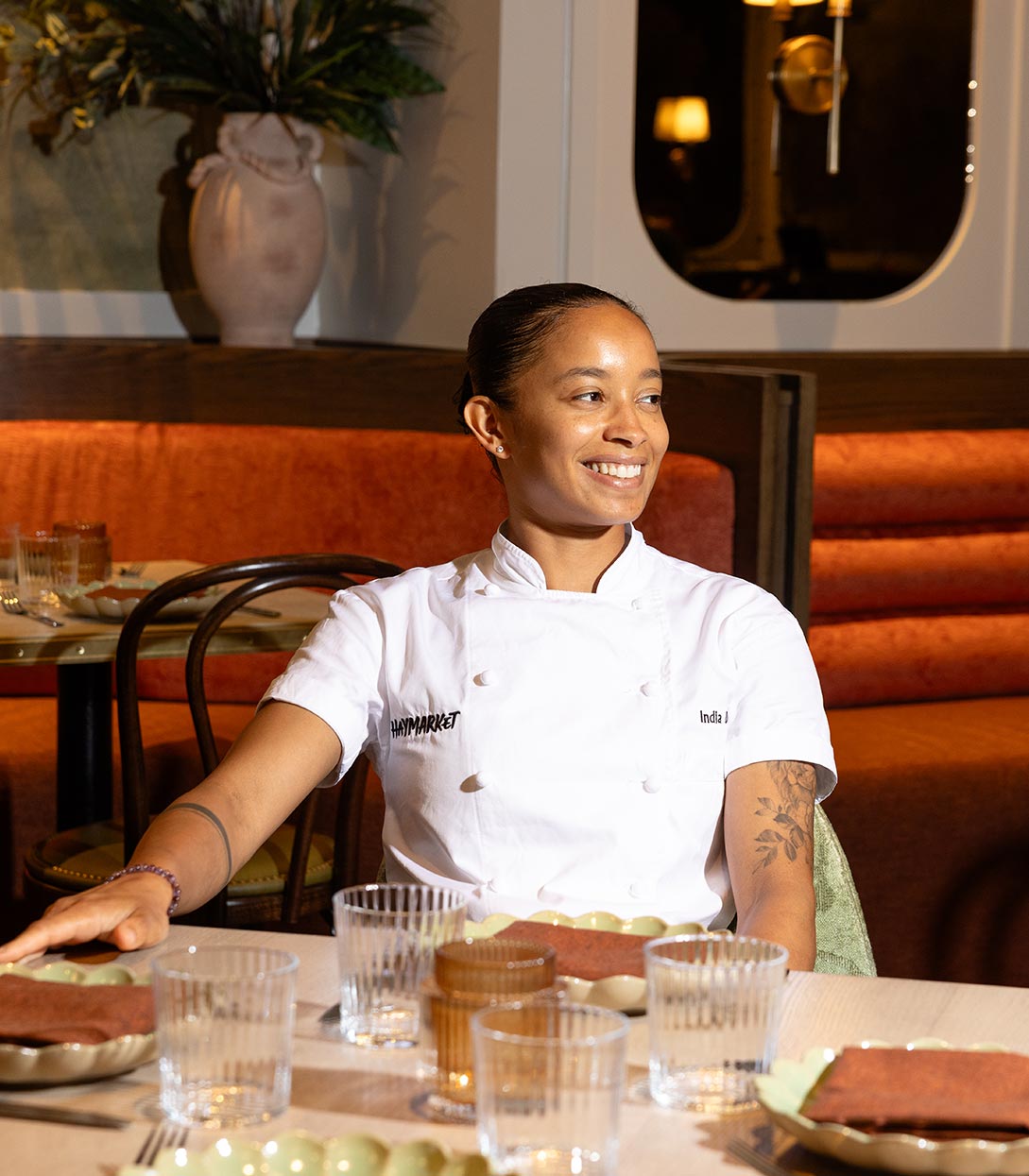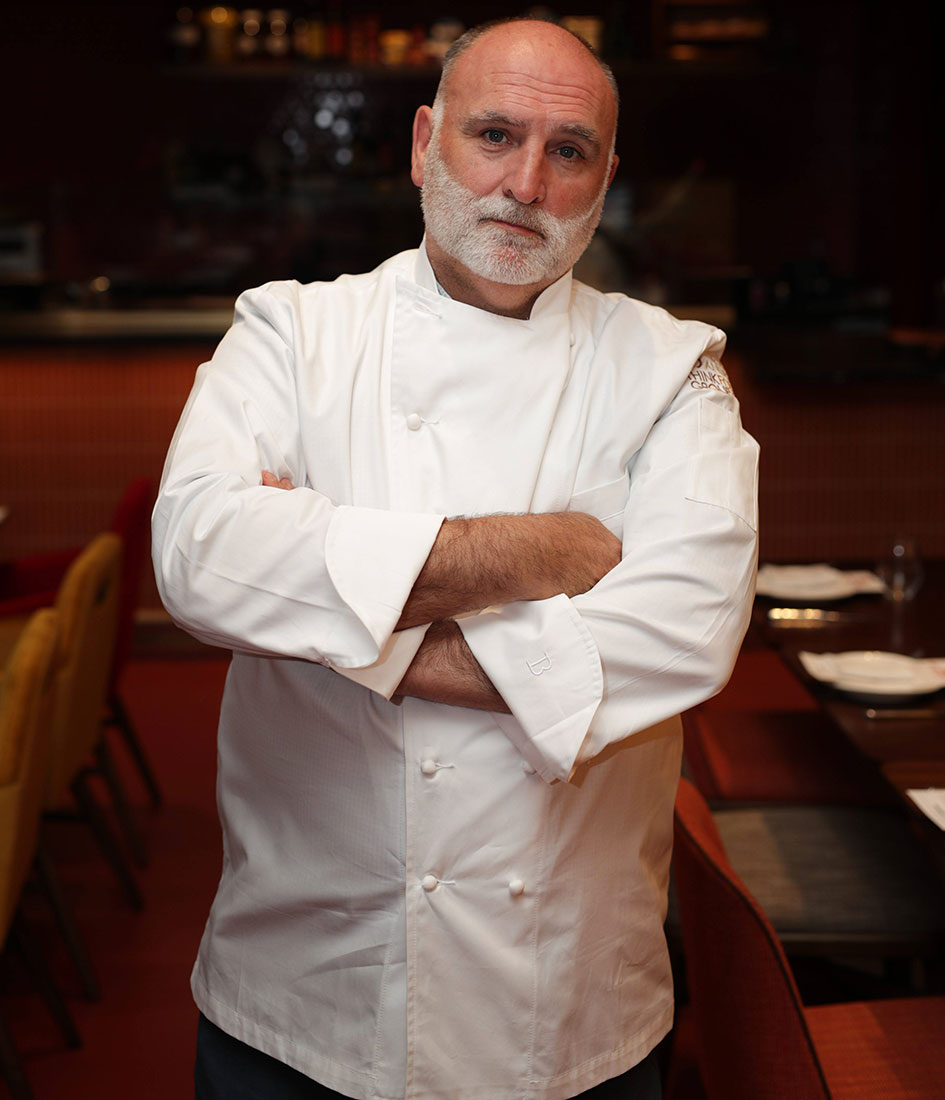In 1889, when the Michelin tire company was founded, there were less than 3,000 cars in France. To boost tire sales, the Michelin brothers published the Red Guide. It contained information on where to get gas or change a tire, but also where to eat and plan trips. The idea was to help get people on the road because more driving resulted in more tire sales. Maybe that’s where a deep connection between chefs and cars was born.
These three Los Angeles chefs—Josiah Citrin, Evan Funke (Felix, Mother Wolf, and Funke), and Gary Menes—prove that point. All three are Porsche owners and enthusiasts and all have a similar theory: It’s the craftsmanship, love, and attention to detail and design. Like Josiah Citrin’s motto for all his restaurants— the pursuit of excellence. The desire to want to take what is already great and improve upon it.
Where did the love of vintage cars stem from for each chef?
Evan Funke’s mother bought his father a 1970 Porsche 911T, after he won his first Academy Award for Total Recall in 1990.
“I thought it was the coolest car I’d ever seen. I fell in love with the shape of my Dad’s Porsche. He eventually let me drive it as a daily. Maybe it’s the connection to the road that you feel when you’re sitting within the chassis of that car. You know how it is. Once you drive a 911 you don’t want to drive anything else.”
Le Comptoir’s Chef Gary Menes’s love for vintage Porsches started back in high school.
“One of the administrators had a sand beige Porsche 912 that he drove to work every day. The beautiful shape and proportions imprinted on my mind and heart. The Porsche 912 personifies me and my little restaurant. It under promises and over delivers.”
For Chef Josiah Citrin, it was a picture of his dad and a late 1950s 356 Porsche. He never saw the car in person—it was just a memory of his father standing in front of it in a photograph. Citrin was never a big car person. Only Porsches. And it predated even that of his passion for food.
“The Porsches came before the cooking,” he said.
Is there a connection between superbly designed cars and the restaurants and food these chefs create?
Gary Menes compared the design of his 1969 Porsche 912 to his own restaurant. “It’s minimal, purposeful yet elegant. Sporty but comfortable at the same time.”

Is there a connection with what chefs do every day and the cars they love?
Evan Funke found importance in the fact that Porsches are high performance and low maintenance.
“Ferrari is one of the most beautiful cars in the world. But if you drive it, you’re in the shop. Engine out. I just love that I can drive my car every day and not think about it.”
Funke has often used an analogy when it comes to high-performance teambuilding in the restaurant business.
“There's a direct correlation between how a team is engineered and how an engine is built. I want high performance, low maintenance, I do not want high performance, high maintenance, or low performance, high maintenance. The efficiency and thoughtfulness of design that exists within Porsche is very much correlated with the thoughtfulness of design and the performance-based design that we look for in restaurants. You can absolutely apply that to any business. In both instances it comes down to the end user. They need to feel connected to the process, what’s being delivered, their emotions post-experience.
And I know for a fact, every time I drive back to my garage, I say, ‘I love this car.’ Every single time— I savor the moment. That’s the same mechanism in hospitality. When people leave a great restaurant, they say, ‘I need to make another reservation.’ It’s how the experience transcends the ordinary. That's hospitality. It’s the same feeling you walk away with in both cases.
How you feel when you leave a place, or how you feel after you experience something—it’s really the same thing. For me it’s no different than a great movie. Great movies move you. You want to watch it again. You get a visceral reaction. And that's what Porsche does for its drivers. This reaction, they can't wait to drive it again. And that's a really great restaurant. Can't wait to come back.”
There is a movement of nostalgia for vintage cars happening. In terms of food, what dishes, culinary styles and trends do you miss or think about bringing back?
Gary Menes believes every generation learns a new way of doing things, but the end result is excellence.
“I don’t want to be the old guy saying ‘back in my day...’ I love what the next generation is bringing to the table and the new way they look at things. When Chef Thomas Keller was doing lobster mac and cheese at the French Laundry 25 years ago when I was a young cook I thought, ‘what a great way to rethink something and make it elegant.’ Like Porsche taking the rear engine design and rethinking it, the idea of it and making it better every year.”
Evan Funke feels that the restaurant business, fashion industry, movies, and television are all cyclical. What’s old is now new.
“And I live in the history of Italian food culture. Bringing forward the anthropology of dishes and places is informed by what I do on a daily basis. Less so about the technique, more why it’s special. What is the connection to the people, the place, and the product? I love when chefs bring back old continental dishes from a bygone era. Because it keys people into a dish’s origin story. Being a culinary storyteller, I just find it very romantic to bring old things back, give them new life. The correlation of vintage cars—it's continuing the life of something that in its time was the peak of performance. But today still has such a vibrance to it, so I love bringing back something old and giving it new life.”
Gary Menes is drawn to older cars because they were created in a world where manual input was required from its drivers. It was a simpler time and a more tapped-in experience.
“Vintage cars are more analogue, with less or no driver assistance. The chassis was drawn and made by hand which is like what we do at the restaurant. The 912 is like riding a motorcycle with a windshield. I can’t explain my affinity. I guess it’s like love, it found me.”
The same nostalgia that draws Josiah Citrin to older cars reminds him of a love for French-style 1960s and 70s kitchen design that still has so much relevance and intrigue today. Just like his 1983 911 Targa.

Are there any small details that you love, that are probably overlooked? Something that still drives you? Both in cars and restaurants?
Evan Funke believes the straightforward presentation of his simple Italian cuisine belies the intricate technique and design that goes into it. This correlation between what he does and what the restaurant does is similar to the cars he loves. Where the countless hours of designing even the smallest pieces, like piston heads or rocker arms, are not immediately apparent. The connection he strives to create is between the pasta maker and the diner.
“If a diner sees the pasta maker making shapes one gram apiece through the glass, and later on, they look down at their plate with 150 pieces, they will realize the effort that went into making that dish. This connection can change the way they perceive their plate of pasta, and if we can maintain this connection, we can create a deeper and more meaningful experience for our guests. Similarly, if most people knew what went into the design and engineering of a car, down to the nuts and bolts, they would have a more profound connection with that car, just as they would with a plate of pasta.”
For Chef Josiah Citrin— that small detail, often overlooked is the sound of an air-cooled Porsche door closing.
“It’s an unmistakable clink only an air-cooled Porsche door can make. You can hear it in the parking lot if you’re in your house and you know exactly what it is.”
What details do you think might be overlooked in the kitchen and restaurant?
“I think the subtlety of just seasoning right. Using good quality salt, pepper, and olive oil for steak. How delicious something tastes that is simply made. If you buy a great piece of steak, great meat or fish, you cook it properly, the way it should be, to bring out the maximum flavor, texture. And then just light seasoning, I think it’s like that clink sound. It comes down to just that. They're two very straightforward things but they can also both be overlooked.
In the design and thoughtfulness of a restaurant—it’s really no different. How you’re welcomed. The plateware, the chinaware, the glassware. Does it feel well in a man’s hand, in a woman’s hand. The music we play. Every detail is thought about.”
Asked if a restaurant and a car can both feel like home, Josiah Citrin said yes to both. The physical sensation of the drive to and from his highly acclaimed restaurant Mélisse and the establishment itself both feel like home to him.
“It’s been through different renditions of itself too. Changed a lot. Much more so than say all the Porsches I’ve had. They’ve always felt remarkably consistent to me. But I feel at home in both, yes. I know these are all just temporary emotions. How good that day feels. On the drive in one of the cars up to the restaurant. You remind yourself to appreciate these things. How lucky you are.”
His first Porsche, like Evan Funke, was also a Porsche 996. The egg-shaped headlights have been considered undesirable by many. Created to consolidate all light functions into one unit, it shortened production time. Citrin compared it to making a dish for service that doesn’t work. Reworking it. Finding a way to get there. Perfecting the ingredients and getting the technique down, the combination of flavors just right. The textures, the visual aspect. Get it to the point that it’s ready to go into service so that the cooks can make it, go down the assembly line, and make it come out fast.
He likens his kitchen to that of a well-oiled Porsche factory.
“I need to be sure what I’m making is coming out on time and not just for profitability necessarily, but for our customers. The idea of how quickly they need to have the food and to keep dinner service moving for the guests. So you can turn the table and use it again. I just thought how interesting that was when I read that about the headlights. How comparable it was to how I run a kitchen. For Porsche they're looking at every detail of the car. I read this book I have here about all the different Porsches, Porsches 70 Years, There is No Substitute. The attention to detail, the craftsmanship that goes into the cars—it’s very much like having a restaurant for 25 years. Everything is going into it. And it's for the love of the place. The love of hospitality. The love of creating experiences for people, nourishing them. That's where it all comes from.”







